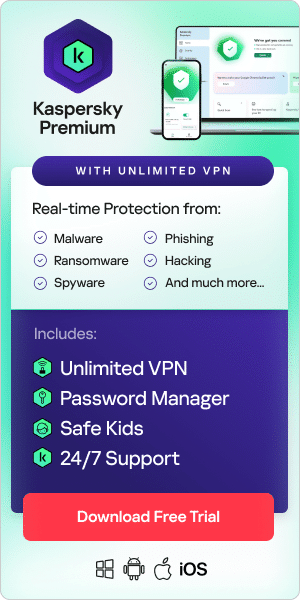
Cybercrime is becoming an increasingly serious threat. Attacks are becoming ever greater in number, size, and sophistication, while the advent of new technologies like artificial intelligence (AI) means that bad actors can make their attempts more subtle and convincing than ever before.
Every business, big and small, is constantly battling to keep its data, systems, and applications safe. Even the biggest companies find this a challenge, which is why they invest a large amount of money every year into the best security solutions and the most talented IT security employees around.
Small businesses, however, can’t do that. IT security can be an expensive endeavor, and skilled security staff are increasingly hard to come by: according to the World Economic Forum, as many as four million cybersecurity professionals are ‘urgently needed’ to plug the talent gap. This shortage means that top experts command very high salaries that are well beyond the reach of SMEs and that only larger international enterprises can afford.
So, when small businesses don’t have the resources for a dedicated IT team, how can they maintain strong security? This article explains how, including the biggest challenges to address, the essential tools and solutions, tips on cybersecurity best practices, and how to cut security costs without compromising protection.
What are the biggest challenges around IT security for small businesses?
The smaller the business, the bigger the impact a successful data breach or cyberattack can have. The disruption can be legal, financial, operational, and reputational and it can take months or even years to recover.
All responsible small business owners and employees will be aware of these potential consequences, but it doesn’t change the fact that they find it difficult to take appropriate protective measures. This is down to a variety of reasons, including (and not necessarily limited to):
Limited funding
Smaller businesses naturally tend to have lower turnover, profit, and operating budget, which makes committing to IT security investment difficult. Furthermore, many solutions require up-front payment through capital expenditure, with big bills that SMEs find difficult to accommodate without planning for them far in advance.
Perception of being easier targets
Kaspersky's research found that as many as 43% of small businesses don’t have any cybersecurity measures in place whatsoever. This is largely borne out of the belief that they aren’t big enough for cybercriminals to care about them - but the opposite is true. Many hackers have realized that SMEs are relatively easy pickings, and that while the rewards on offer may be lower, the time and effort they need to make to access systems and data is vastly reduced, due to the lack of protection in place.
Rise of remote working
With more businesses offering home and flexible working models post-pandemic, keeping business systems secure has become more complex. Larger organizations have IT teams that can ensure domestic Internet connectivity is sufficiently secure and have safeguards in place around data and application access. SMEs without dedicated IT teams won’t be able to enforce these, meaning security protection is often left entirely in the hands of remote end-users.
Maintaining business continuity
If an attack does arise, it can immediately cause huge amounts of disruption to every part of an SME’s operation, from fulfilling orders to receiving emails. Without IT support, the response and remediation process can take much longer, which has a deeper impact on revenue, profitability, and ongoing reputation.
Meeting compliance demands
All businesses, irrespective of size, are required to comply with important legislation such as the General Data Protection Regulation (GDPR). This often requires reports and audits to prove compliance, and these may need IT expertise to ensure that the process runs smoothly. This is especially important given that the penalties for non-compliance can be severe.
Need Good IT Security Without an In-House Team?
Ensure secure communications and advanced threat protection to safeguard against advanced threats.
Try KSOS for FreeTools and solutions to protect a small business
Despite those challenges, keeping small business data, applications, and systems is by no means impossible, if the right solutions and tools are utilized. The range of solutions and services on the market is so large that it can be difficult to choose from, but the essentials that should be considered include:
Cloud services and storage
The cloud has given all businesses much-needed flexibility and efficiency in how they store data and run applications; the ability to do so from anywhere has proven instrumental in the rise of hybrid and remote working. Good cloud protection will have strong security in place, often far beyond those an SME could reasonably apply on its own storage hardware like hard drives and servers.
Antivirus software and firewalls
A good antivirus solution will be able to detect and shut down threats such as ransomware, malware and other malicious activity before it can have any impact. For example, features within the Kaspersky Small Office Security package include real-time protection and a two-way firewall, which collectively ensure that the right traffic can seamlessly move through a business - and the wrong traffic can’t.
Multi-Factor Authentication (MFA)
Backup and disaster recovery
When data is lost due to a cyberattack, having a recent version of data that can easily be accessed and restored is vital to maintaining business continuity as much as possible. A backup and disaster recovery solution can automatically back data up in the cloud on a pre-set schedule so recovery can swing into action as soon as a problem is identified.
Managed Security Service Provider (MSSP)
The best cybersecurity tips for businesses
On top of the solutions mentioned above, there are several other cybersecurity tips for business and best practice procedures that can further instill a strong security culture across an organization, whatever its size and level of resources:
Using password protection and management
Employees should be encouraged to use strong passwords that can’t be guessed and to
change them regularly (alongside the use of MFA). This should come in
conjunction with access control like
Working towards official security certification
Many governments and authorities have cybersecurity frameworks in place, which encourage small businesses to adopt good security practices on route to certification. For example, Kaspersky Cybersecurity Training gives organizations the opportunity to get the most up-to-date security education, led by experts and available on-demand.
Updating systems and applications regularly
The longer an application has been released, the longer cybercriminals are likely to have been working on exploiting any vulnerabilities they can find within it. It’s for that reason that developers regularly release updates that close off any vulnerabilities (and add new features) - and why it’s important to install those updates as and when they become available.
Backing up data regularly
In the previous section, we highlighted the value of a backup and disaster recovery solution. However, this can only be truly effective if backups are scheduled on a very regular basis, ideally once a week or even more regularly for the most business-critical data. It’s also important to test backup data to ensure it’s fully functional if required.
Reviewing information posted on social media
Fraudsters and scammers often find publicly available information on business and personal social media pages to impersonate legitimate people or even gain access to systems through credentials they find. All businesses should be careful with what they share on social media and consider whether certain info needs to be shared and/or whether it might pose a security risk.
Cost-effective cybersecurity measures
As mentioned earlier in this guide, cost constraints are one of the biggest barriers to adoptions of cybersecurity solutions. In difficult economic times for small businesses, there is a tricky balancing act to strike between maximizing cost efficiency and ensuring security protection remains robust. These measures can all be implemented with minimal outlay (or none at all) but can make a real difference in keeping security protection high:
Access control audits
Business needs change all the time, and users who have access to sensitive data and applications now might not in the future. For example, if they leave the company or change position. A regular audit of access controls can shut down any access that has become unnecessary and ensures the perfect balance of productivity and security is always maintained.
Reading and research
With security and cybercrime evolving all the time, staying up to date with the latest threats and countermeasures can be vital to informing future security decisions. Checking in with the latest developments covered in Kaspersky’s Resource Center can help improve the knowledge base within an SME’s workforce.
Training and education
Many attacks like phishing are still successful because of poor user awareness, and with AI making these scams look even more convincing than ever, security knowledge across a workforce is key. Regular training and education may seem like a drag, but it could be the difference between a business-wrecking attack being successful or not.
Email filtering
Connected to the previous point, sophisticated phishing attacks can fool even security-aware employees, so putting extra defenses in place is essential. An email filtering system can detect any inbound emails that are suspected to be malicious in nature, with the bonus of also filtering out unwanted and unnecessary spam.
In summary: simplifying strong IT security for businesses with limited resources
The importance of IT security for small
businesses is clear, and while the solutions and tools above can make that
security both strong and cost-effective, it can still be a time-consuming task
beyond the human resources of small businesses.
The best way to address that problem is to combine multiple solutions into a
single package, provided by a recognized leader in cybersecurity. For example, Kaspersky Small Office Security brings
together password management, a premium VPN, malware and ransomware protection,
and much more. Applicable across all types of devices, it’s available as a
subscription service with prices tailored to the exact number of users that
need to be covered, maximizing the cost efficiency of putting the best possible
security in place.
Related Articles:
- Email security for small businesses
- How to choose the right password manager - what to look out for
- Phishing and online video conferencing - Is your meeting invite safe to click?
Related Products:

